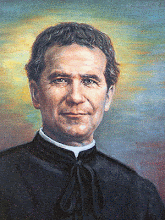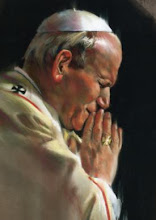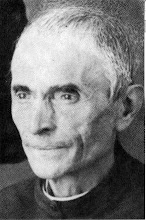Psychologists tell us that one of the chief evils of our age, an evil apparently less evident in earlier ages, is that of easy defeat. Be this as it may, most people who are honest with themselves would probably have to admit to indulging in despondency. They are fortunate if they have nothing worse to confess than despondency; there are many who labor under the weight of near-despair. Whether guilty of surrendering to the temptation or whether burdened with a sense of guilt that in fact is without foundation, a man can reduce his spiritual vitality so as virtually to close his soul to the operation of hope. When hope dies, there is very little chance for faith and charity.
It is a commonplace to observe that the saints were not those who never fell, but those who never gave in to their falls. It is less generally understood that the saints felt just the same longing as we do for the excuse to go on falling. The parable of the wheat and the cockle should show us that the saints were not only as divided against themselves interiorly as we are, but that they had to go on struggling all their lives against the desire to let the cockle have its way.
A mistake we make is to think of the saints as triumphing over temptation by the felt force of ardent love. Some of them, certainly, experienced this fire, but for the most of them it has been a question of grinding out dry, hard acts of faith and hope through clenched teeth. The saints have had to fight every inch of the way against discouragement, defeatism, and even despair.
How could it be otherwise? No virtue can be productive of good unless it comes up against the evil that is its opposite. Courage is not courage until it has experienced fear: courage is not the absence of fear, but the sublimation of fear. In the same way, perseverance has to be tried by the temptation to give up, by the sense of failure, by an inability to feel the support of grace. The reason Christ fell repeatedly — one tradition would have it that He fell seven times — is at least partly because we fall repeatedly and have need of His example in recovering from our falls. The difference between His falls and ours is that, whereas His were because of weakness of the body, ours are because of weakness of the will. The likeness between His and ours lies simply in the use that can be made of them.
Even if we do not reproduce the Passion in any other respect, we have the chance of reproducing it in perseverance under exhaustion. If, as we have seen, the Passion is constantly being renewed in the members of Christ’s Mystical Body, there must always be some aspect of Christ’s suffering to which our own personal sufferings can show an affinity. If we are bearing witness to the same truth, opposing the same evil, moving in the same direction, then the same means must be used by us as those that were used by Christ — namely, patience and endurance in the all-but-defeating experience of life. The effort that we make to regain the position lost by either circumstances or sin will reflect the effort made by Christ to return to the interrupted work of cross-bearing. Nothing of our experience need be wasted, not even our sinfulness.
So it would seem that the truly Christian man transcends discouragement only by accepting it. No man can pass beyond an obstacle except by facing it and rising above it. To go around an obstacle is not to overcome it, but to evade it. Circumvention may be all right when we are traveling along a road, but it will not do when we are advancing toward God by the way of the Cross.

























